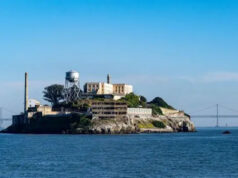
Panama Shifts Course Amid U.S. Pressure
Panama has announced it will terminate a key development agreement with China and move toward a closer partnership with the United States, following a visit from U.S. Secretary of State Marco Rubio. The decision comes amid rising tensions over China’s growing influence in the region and renewed efforts by the Trump administration to reassert American leadership over the Panama Canal.
Panamanian President José Raúl Mulino confirmed that his administration will not renew the 2017 memorandum of understanding with China’s Belt and Road Initiative, a global infrastructure strategy that has expanded Beijing’s reach across Latin America. Instead, Mulino signaled a shift toward greater economic collaboration with the United States.
“I think this visit opens the door to build new relations … and try to increase as much as possible U.S. investments in Panama,” Mulino said after his meeting with Rubio, who was recently confirmed as Secretary of State under President Donald Trump.
U.S. Concerns Over Chinese Influence in the Panama Canal
The Panama Canal, a 51-mile waterway connecting the Pacific Ocean and the Caribbean Sea, is one of the world’s most critical shipping routes. The U.S. Department of State estimates that 72% of all vessels passing through the canal are either coming from or headed to a U.S. port.
Rubio, a longtime critic of China’s influence in Latin America, echoed growing concerns in Washington that Beijing exerts control over key operations near the canal.
“The United States cannot, and will not, allow the Chinese Communist Party to continue with its effective and growing control over the Panama Canal area,” Rubio wrote on X (formerly Twitter) during his visit.
China has invested heavily in Panamanian infrastructure over the past several years, raising alarms in Washington that Beijing could use its economic leverage to restrict access or impose higher costs on American trade. President Trump has repeatedly criticized China’s role, claiming that U.S. ships are forced to pay six-figure premiums to cross the canal.
Trump Administration Pushes for U.S. Control of Canal
Trump has made reclaiming control over the Panama Canal a priority for his second term. The canal was originally built and operated by the U.S. before being handed over to Panama in 1999 as part of an agreement brokered by President Jimmy Carter.
Republican lawmakers are now introducing legislation to explore repurchasing the canal. Rep. Dusty Johnson (R-S.D.) has put forward the Panama Canal Repurchase Act, which would allow the U.S. to buy back ownership of the waterway.
“President Trump is right to consider repurchasing the Panama Canal,” Johnson said in a statement. “China’s interest in and presence around the canal is a cause for concern. America must project strength abroad—owning and operating the Panama Canal might be an important step toward a stronger America and a more secure globe.”
The bill highlights the strategic importance of the canal for U.S. trade and military operations, with U.S. Navy and Coast Guard vessels relying on the passage to avoid an 8,000-mile detour around South America.
China’s Response and Future Outlook
Beijing has not yet issued an official response to Panama’s decision, but it is expected to push back against what it sees as U.S. interference in Latin American affairs. China has significantly expanded its footprint in Panama since 2017, financing major ports, logistics hubs, and energy projects.
For Panama, aligning with the U.S. could bring increased American investment but also risks straining relations with China, its second-largest trading partner. As tensions between the U.S. and China continue to escalate, the fate of the Panama Canal is now at the center of a high-stakes geopolitical battle.



